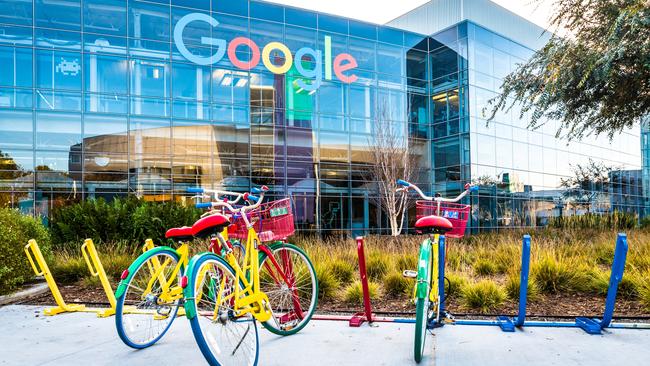Google and Facebook could ‘harm’ consumers, need new laws: ACCC inquiry
Google and Facebook are a threat to privacy, journalism, and businesses in Australia and need new regulations, a world first inquiry into the tech giants has ruled.
Social
Don't miss out on the headlines from Social. Followed categories will be added to My News.
A world-first inquiry into the dominance of tech giants Google and Facebook has found the multibillion-dollar firms could “harm” consumers, decimate privacy, limit competition, reduce scrutiny on powerful institutions, and were in urgent need of greater regulation in Australia.
The damning preliminary report into digital platforms by the Australian Competition and Consumer Commission made 11 recommendations to limit the negative consequences of Google and Facebook’s dominance, as well as identifying another eight areas for further investigation before its final report in June next year.
MORE: Ditching Facebook lowers stress in just five days
MORE: Facebook is short-changing Aussies on privacy rights
The recommendations include establishing a new authority to investigate how the tech giants handle news and advertising in Australia, a review of media regulation, a new standard for taking down copyright-infringing content, and changes to privacy laws to help consumers “make informed decisions” about their personal information.

The ACCC also revealed it was investigating five potential breaches of existing competition and consumer laws by “certain digital platforms” to determine if it needed to fine the companies or take them to court.
The 378-page preliminary report came one year after the competition watchdog was directed to look at the impact of search engines, social media, and other digital platforms on news content, consumers, and advertisers in Australia.
GREATER OVERSIGHT NEEDED
ACCC chairman Rod Sims said the inquiry confirmed both Google and Facebook enjoyed dominant positions in Australia and had become a key way many Australians accessed news from other media sources that invested in journalism.

Despite this, he said, “digital platforms face less regulation than many media businesses,” and their position justified “a greater level of regulatory oversight”.
“Australian law does not prohibit a business from possessing significant market power or using its efficiency of skills to ‘out compete’ its rivals,” Mr Sims said.
“But when their dominant position is at risk of creating competitive or consumer harm, governments should stay ahead of the game and act to protect consumers and businesses through regulation.”
The report noted it was “not at all clear” how Google or Facebook’s algorithms chose which news stories or websites were shown to consumers first, and the platforms had “both the ability and the incentive” to favour businesses that paid to advertise on their platforms, limiting consumers’ ability to make informed choices.

The ACCC recommended the Federal Government create a new authority to “monitor, investigate, and report” on potentially anti-competitive conduct by the digital platforms to expose potential exploitation, as well as how the platforms ranked and disseminated news stories.
It also recommended review existing media regulations be reviewed to create a “platform-neutral” approach to media laws, and recommended a new “take-down standard” to ensure material that infringed copyright could be removed from websites quickly.
The ACCC also found Google and Facebook users faced lengthy and complex privacy contracts with “take-it-or-leave-it terms” and recommended changes to the Privacy Act to strengthen consent, notification, and penalty regulations.
Other areas identified for further investigation in the ACCC’s preliminary report included signalling where news stories came from, obligations to delete users’ data, whether users should be able to opt out of targeted advertising, and measures to fund news and journalism in Australia.
A spokesman for Google Australia said the report tackled “important topics in relation to Australia’s changing media and advertising industry”.
“We will continue to engage with the ACCC between now and the final report next year,” he said.
A Facebook spokesman said the company was still considering its response.
Further submissions to the ACCC’s digital platforms inquiry will be accepted until February 15, and the final report is due on June 3 next year.
Originally published as Google and Facebook could ‘harm’ consumers, need new laws: ACCC inquiry


